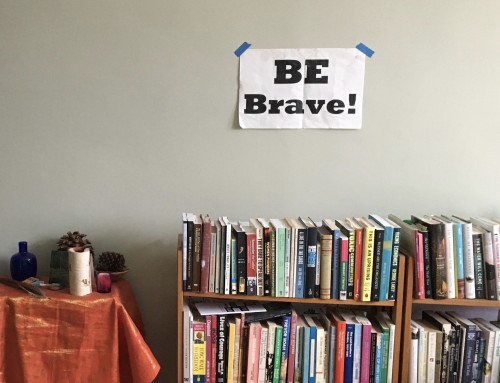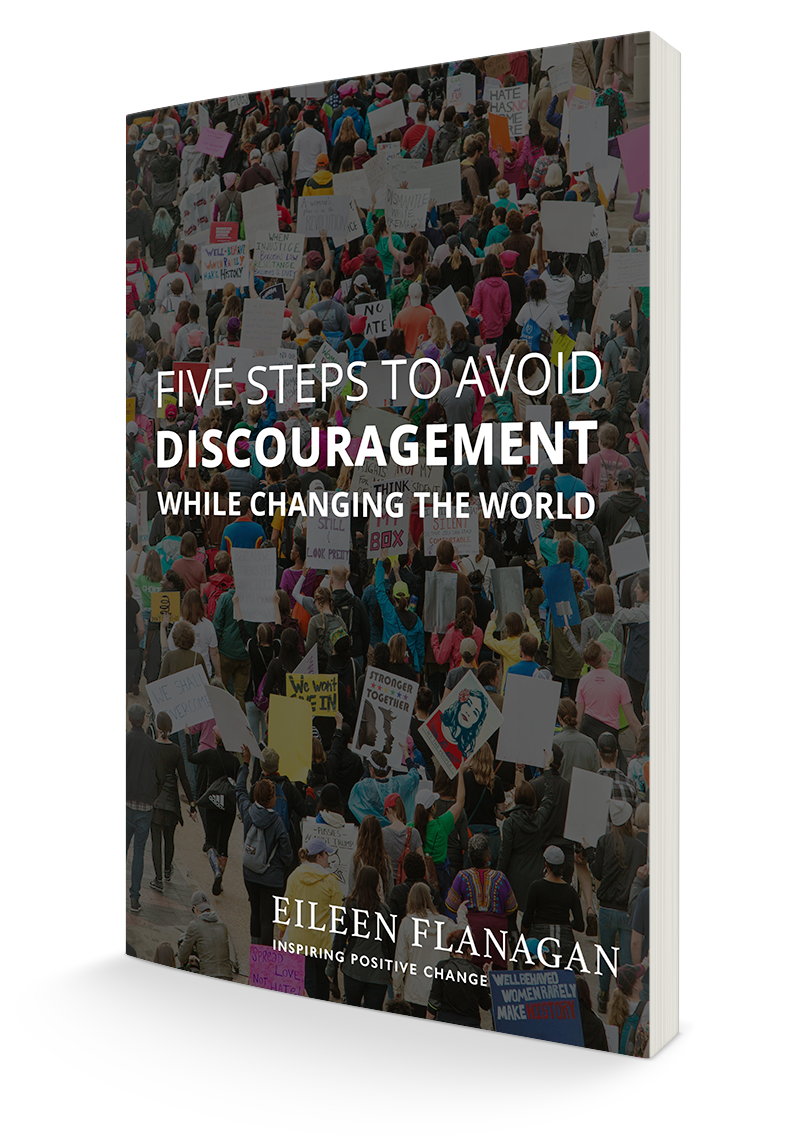As promised last time, I’ve been reading the “cuts” file from The Wisdom to Know the Difference, looking for things that feel worth saying, even though they didn’t make it into the book. I’ve noticed that I did a lot of ranting about our culture early on, which got scaled back as I revised. Here’s a taste:
Our culture discourages us from the practices that help us to connect to our inner guidance. The gym music blares, the doctor’s office television is always on, our senses are constantly being stimulated. Our schedules are full of soccer games and PTA meetings, not to mention commuting to work that is often unsatisfactory. We come home and try to tune out the stress by watching “reality” shows about people with worse problems than our own. This, needless to say, does not lead to serenity or courage. All this contributes to a common sense of alienation, made worse by the fact that we tend to live further removed from nature than previous generations in communities where no one walks or even knows their neighbors. We live in a culture that anesthetizes us from our feelings, and if we’re not in touch with what makes us unhappy, we’re unlikely to do anything to change it. Erich Fromm made this point over fifty years ago in The Sane Society. Imagining the most efficient form of dictatorship, Fromm said it would be a system where people were too distracted to realize they were unhappy.
Another part of alienation is being overwhelmed and not knowing what to do. Even if we believe we should change our lives and others’ lives for the better, even if we haven’t been too beaten down by life to believe we can make a difference, even if we are not in denial that there are problems that need to be solved, and have not lost our compassion, we may feel uncertain what to do. This is the challenge I most often face. Some people call it compassion fatigue. We can’t respond to every plea for help, so we either stop responding altogether, or give $20 to every organization that asks and end up feeling that we haven’t done anything significant for anyone.
Obviously no one of us can take on all the things that should be changed in the world. I can’t even keep up with all the e-mails asking me to fax my representatives about global warming, mercury in our water, and Darfur. Add to this the fact that we receive so many other messages in our culture about things we should be doing: we should control the mold in our houses, our children’s Internet use, our weight, our credit card debt. Advertisers bombard us with images of perfection, achievable if only we buy their products. Even if we don’t buy into the images, they affect us, adding to that stressed out feeling so common today. Some say part of our alienation comes from living in the nuclear age, during the first era when humanity has the technical ability to blow ourselves to smithereens. My eleven-year-old daughter believes that global warming is going to kill all of us in fifty years. Although I assure her that is an exaggeration, her concerns are not unfounded. Still, her brother needs help with his book report, and that need seems more pressing at the moment.




Leave A Comment